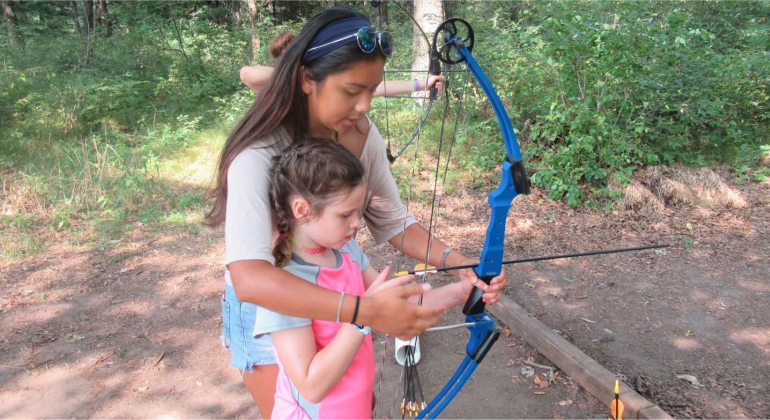Bringing the Book of Ruth To Chi on Shavuot

Last night marked the beginning of Shavuot. Shavout is literally translated to weeks, as it falls 7 weeks after the holiday of Passover. Shavuot has a double significance. It marks the all-important wheat harvest in Israel (Exodus 34:22), and it commemorates the anniversary of the day when God gave the Torah to the nation of Israel assembled at Mount Sinai.
On Shavuot, we read the Book of Ruth, named after its central figure, Ruth the Moabitess, the great-grandmother of King David. The book is about a young non-Jewish woman, name Ruth who ties her fate to her mother-in-law. It tells of Ruth’s accepting the God of the Israelites as her God and the Israelite people as her own.
Ruth famously states, “Where you go I will go, your home will be my home, your people my people, and your God my God” (Ruth 1:16).
As we begin to welcome our first waves of staff to camp to begin our season, I am struck by how many of them are taking a similar leap of faith. Our full-time team travels all over the world to find the best staff for camp, from the U.K. to Eastern Europe to Israel. In each country, after each Skype interview, these new staff members simply say: Yes! I’ll come to your American Jewish summer camp! Some have never been to America, some have never experienced summer camp or have a connection to Judaism, and some, like Ruth, are not Jewish at all. And yet they make the journey to live by our mission and values and to join our community for the summer months.
What drives Ruth to make this commitment? Rav Ze’ira states, “Why was [the Book of Ruth] written? To teach how great is the reward of those who do deeds of kindness” (Ruth Rabbah 2.14). Scholars cite many examples of kindness in the story, including Ruth’s refusal to abandon her mother-in-law, as well as Boaz the landowner allowing Ruth to glean barley in his fields. Ruth is motivated by her love for her mother-in-law, which leads to her acts of kindness
Commentators highlight the value of chesed (kindness) that pervades the story of Ruth. Chesed is often translated as loving-kindness, to indicate kindness motivated by love and compassion. It is also one of Camp Chi’s core values; from the way we treat each other in the cabins to the way we welcome our incredibly diverse staff and camper community. It is a kindness motivated by a deep sense of love for this place, its people, and our mission. It is a kindness that inspires action, from small acts of compassion to large movements of social action.
So what do we learn from Ruth? In camp, we see the reward that comes with living within a culture of kindness. By going where we go, by making our home their home, staff and campers come away from camp with a strengthened sense of community and responsibility that will help them live chesed for the rest of their lives.
Joelle Kelenson is one of the assistant directors at Camp Chi. Joelle supervises Shoreshim, Tsofim, Garinim, Yeladim and the Pacific Northwest Adventure Trip. Additionally Joelle works closely with the Schlichim to infuse Israeli culture throughout camp and is a core part of the Jewish programming at camp.






